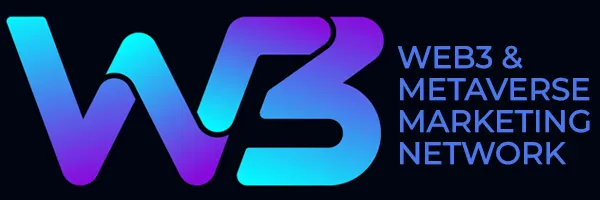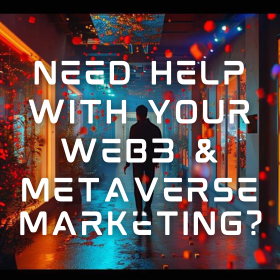The metaverse isn’t just a buzzword; it’s a transformative wave sweeping through the digital landscape, and major players like Google, Facebook, Snapchat, Microsoft, Epic Games (Fortnite’s owner), and Roblox are riding it.
Decoding the Metaverse: Picture a virtual universe where you’re not just an observer but a creator, seamlessly carrying your real-world experiences into the digital realm.
It took thirty years for the internet to go public, and another two decades for businesses to realize the necessity of a website for marketing. Social media networks had their own timeline to gain traction. Now, with experts predicting that nearly 58.9 million and 93.3 million people in the U.S. will use VR and AR monthly, the metaverse is set to become the successor to today’s internet.
The fusion of 5G, artificial intelligence (AI), and edge cloud processing will facilitate more seamless, enjoyable, and cost-effective AR VR experiences across diverse connected devices.
The Metaverse’s Market Momentum: Just as the internet became indispensable, industry insiders forecast the metaverse to be a necessity for all brands. Facebook, led by Mark Zuckerberg, has even declared its transformation into a “metaverse” company.
Metaverse Dynamics: 7 Quick Facts:
- Google Trends shows a substantial surge in metaverse searches in the past year.
- Top-tier media, including Forbes, are extensively covering the metaverse.
- Matthew Ball’s Metaverse ATF and the rise of metaverse-centric titles on LinkedIn signify growing interest.
- Chief Metaverse Officer roles are emerging, emphasizing the metaverse’s organizational impact.
- Google News boasts 175,000 metaverse-related search results.
- On Twitter, #metaverse garners about 500+ tweets per hour, indicating a vibrant online conversation.
- Instagram is witnessing a shift towards #metaverse with over 43K posts, showcasing the platform’s evolution.
Navigating the Metaverse: What Awaits Marketers? The metaverse, according to Wikipedia, encompasses all virtual worlds, augmented reality, and the internet, offering a shared virtual space formed by the convergence of enhanced physical reality and persistent virtual space.
This evolving metaverse is not just for gaming; it’s becoming a space for creation, exploration, expression, collaboration, and socialization. Brands like Gucci, Nike, Disney, Snap, and Facebook are already establishing their presence in this virtual realm, crafting communities, content, assets, and experiences.
Preparing for the Metaverse Revolution: In today’s landscape, savvy marketers are integrating virtual reality, augmented reality, and artificial intelligence into their digital strategies. As the metaverse becomes a space for everyone, brands need to adapt narratives to three dimensions, embracing emerging technology at an accelerated pace.
Staying Relevant in the Snapchat Generation: Snap Director and General Manager Canada, Matt McGowan, highlights the significance of reaching Gen Z and millennials, the Snapchat Generation. With over $4.4 trillion in global spending power, this demographic influences household spending significantly.
Brands can connect with this audience on platforms like Snapchat, where they spend a substantial amount of time.
SEO and the Metaverse: Much like the shift to optimize for traditional search engines, brands are now considering how to be discoverable in the metaverse. Staking a claim in relevant metaverse communities and platforms, along with incorporating “metaverse” into brand names and headlines, can enhance visibility.
AR Content, Local SEO, and More: Local businesses can leverage Google’s AR/VR technologies for immersive 3D experiences directly from local listings. Augmented reality, from trying on shoes to providing tutorials, offers innovative ways to impact search results.
Visual search is a pivotal aspect, and integrating AR, VR, and 3D experiences into content strategies is crucial.
Social Media’s Metaverse Transition: Facebook, envisioning itself as a metaverse company, has ventured into 3D spaces like Facebook Horizon. Snapchat is also actively embracing 3D content, offering tools like Lens Web Builder for AR creation.
Snapchat Trends, a tool showcasing trending words and phrases, aids advertisers in understanding real-time community interests.
Public Relations in the Metaverse: Brands making metaverse headlines are using creative approaches like non-fungible tokens (NFTs) to bridge the physical and digital worlds. AR, VR, and PR can intersect through AR content creation, VR events, collaborations with influencers, and staying informed through Google Alerts.
The Rise of Virtual Beings: Virtual beings, AI-driven entities like Siri and Alexa, are becoming integral to daily life. As brands explore creating virtual influencers, these entities could serve as spokespersons or ambassadors.
Metaverse Marketing: The Future is Now: AR glasses and immersive technologies are shaping the future of communication. Brands need to navigate these new realms with innovative approaches. The metaverse, unlike the internet’s 30-year evolution, is set for rapid growth with technology aligning and humans ready to embrace new worlds.
Unlocking the Metaverse: Revolutionizing Marketing Strategies
The metaverse isn’t just a buzzword; it’s a transformative wave sweeping through the digital landscape, and major players like Google, Facebook, Snapchat, Microsoft, Epic Games (Fortnite’s owner), and Roblox are riding it.
Decoding the Metaverse: Picture a virtual universe where you’re not just an observer but a creator, seamlessly carrying your real-world experiences into the digital realm.
It took thirty years for the internet to go public, and another two decades for businesses to realize the necessity of a website for marketing. Social media networks had their own timeline to gain traction. Now, with experts predicting that nearly 58.9 million and 93.3 million people in the U.S. will use VR and AR monthly, the metaverse is set to become the successor to today’s internet.
The fusion of 5G, artificial intelligence (AI), and edge cloud processing will facilitate more seamless, enjoyable, and cost-effective AR VR experiences across diverse connected devices.
The Metaverse’s Market Momentum: Just as the internet became indispensable, industry insiders forecast the metaverse to be a necessity for all brands. Facebook, led by Mark Zuckerberg, has even declared its transformation into a “metaverse” company.
Metaverse Dynamics: 7 Quick Facts:
- Google Trends shows a substantial surge in metaverse searches in the past year.
- Top-tier media, including Forbes, are extensively covering the metaverse.
- Matthew Ball’s Metaverse ATF and the rise of metaverse-centric titles on LinkedIn signify growing interest.
- Chief Metaverse Officer roles are emerging, emphasizing the metaverse’s organizational impact.
- Google News boasts 175,000 metaverse-related search results.
- On Twitter, #metaverse garners about 500+ tweets per hour, indicating a vibrant online conversation.
- Instagram is witnessing a shift towards #metaverse with over 43K posts, showcasing the platform’s evolution.
Navigating the Metaverse: What Awaits Marketers? The metaverse, according to Wikipedia, encompasses all virtual worlds, augmented reality, and the internet, offering a shared virtual space formed by the convergence of enhanced physical reality and persistent virtual space.
This evolving metaverse is not just for gaming; it’s becoming a space for creation, exploration, expression, collaboration, and socialization. Brands like Gucci, Nike, Disney, Snap, and Facebook are already establishing their presence in this virtual realm, crafting communities, content, assets, and experiences.
Preparing for the Metaverse Revolution: In today’s landscape, savvy marketers are integrating virtual reality, augmented reality, and artificial intelligence into their digital strategies. As the metaverse becomes a space for everyone, brands need to adapt narratives to three dimensions, embracing emerging technology at an accelerated pace.
Staying Relevant in the Snapchat Generation: Snap Director and General Manager Canada, Matt McGowan, highlights the significance of reaching Gen Z and millennials, the Snapchat Generation. With over $4.4 trillion in global spending power, this demographic influences household spending significantly.
Brands can connect with this audience on platforms like Snapchat, where they spend a substantial amount of time.
SEO and the Metaverse: Much like the shift to optimize for traditional search engines, brands are now considering how to be discoverable in the metaverse. Staking a claim in relevant metaverse communities and platforms, along with incorporating “metaverse” into brand names and headlines, can enhance visibility.
AR Content, Local SEO, and More: Local businesses can leverage Google’s AR/VR technologies for immersive 3D experiences directly from local listings. Augmented reality, from trying on shoes to providing tutorials, offers innovative ways to impact search results.
Visual search is a pivotal aspect, and integrating AR, VR, and 3D experiences into content strategies is crucial.
Social Media’s Metaverse Transition: Facebook, envisioning itself as a metaverse company, has ventured into 3D spaces like Facebook Horizon. Snapchat is also actively embracing 3D content, offering tools like Lens Web Builder for AR creation.
Snapchat Trends, a tool showcasing trending words and phrases, aids advertisers in understanding real-time community interests.
Public Relations in the Metaverse: Brands making metaverse headlines are using creative approaches like non-fungible tokens (NFTs) to bridge the physical and digital worlds. AR, VR, and PR can intersect through AR content creation, VR events, collaborations with influencers, and staying informed through Google Alerts.
The Rise of Virtual Beings: Virtual beings, AI-driven entities like Siri and Alexa, are becoming integral to daily life. As brands explore creating virtual influencers, these entities could serve as spokespersons or ambassadors.
Metaverse Marketing: The Future is Now: AR glasses and immersive technologies are shaping the future of communication. Brands need to navigate these new realms with innovative approaches. The metaverse, unlike the internet’s 30-year evolution, is set for rapid growth with technology aligning and humans ready to embrace new worlds.











